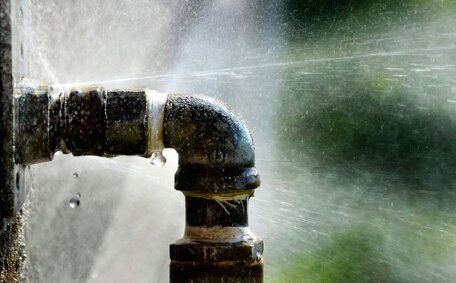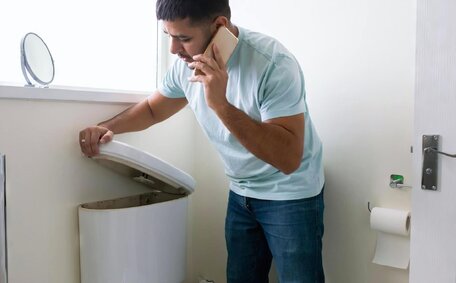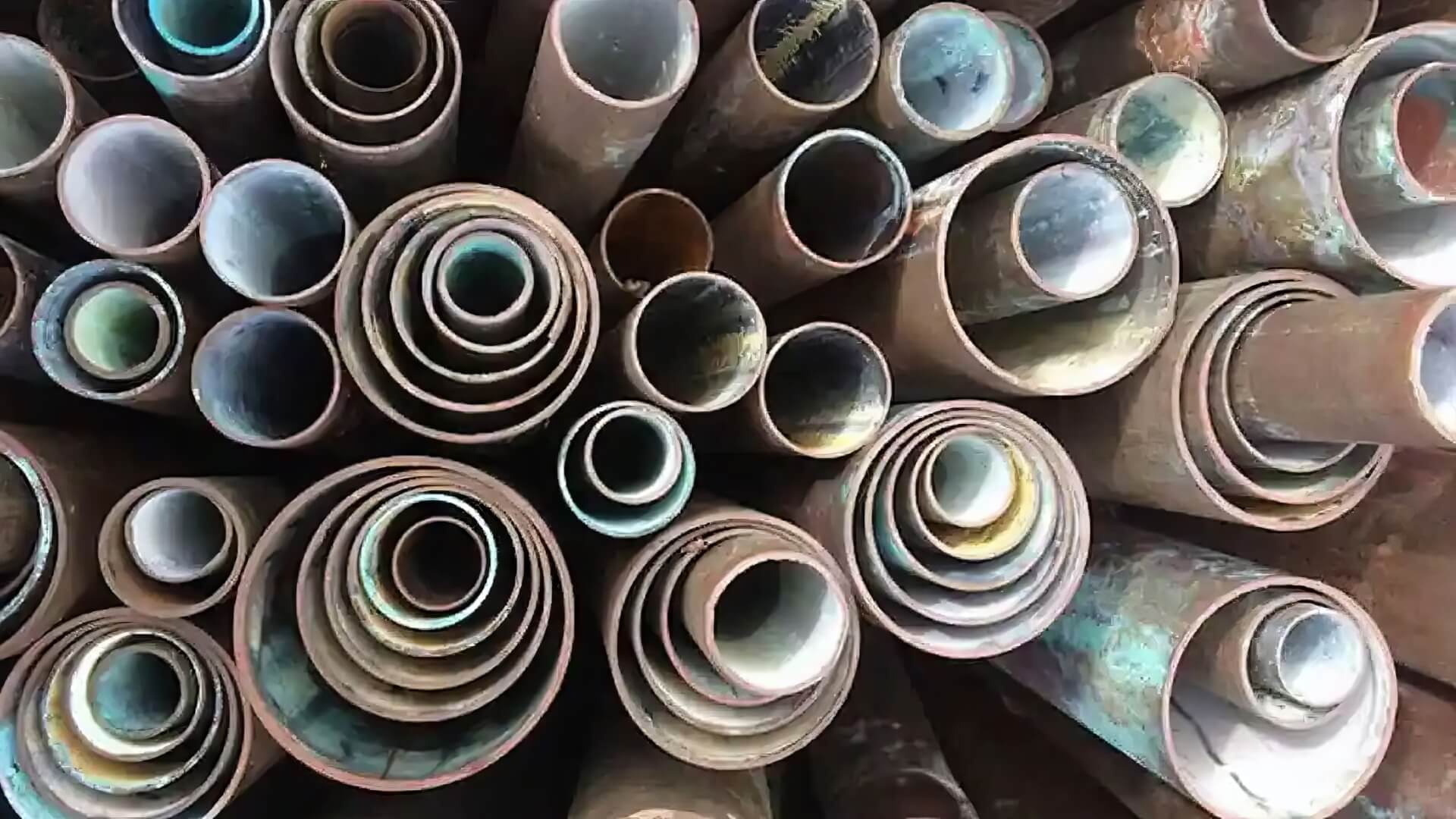
10 Signs Your Hot Water Heater Will Fail
If your water heater is old, leaking, rusty, noisy, not heating water properly or has low pressure, it could fail soon. Get your hot water system inspected today.
Read MoreHomeowners must know their gas meter and system locations to act quickly in emergencies. Familiarity with these locations streamlines turning off the gas supply or disconnecting lines in emergencies or for maintenance.
Efficient management of your home’s gas, including appliances like your gas stove, requires awareness of your gas meter’s location, particularly to swiftly turn the gas supply off when needed.
In properties with older gas setups, safely shut off gas to all appliances and inspect for active gas meters, which may be in the garage or laundry room. Gas is channelled from the street to your meter via an underground pipeline, which controls the flow to the gas shut-off valve and appliance taps in your residence.
Amongst your appliances, common fixtures like water heaters, efficient gas stoves, and snug space heaters are essentials in households. Appliances, such as gas stoves, have easily accessible valves, often behind the unit, allowing for safe and simple maintenance. Familiarising yourself with these shut-off valve locations is practical for urgent situations that require stopping gas appliance operations.
Being informed about when and how to turn off your gas meter and supply valve is crucial for immediate action during hazardous situations. Understanding how to manage your home’s gas network, from detecting leaks to disconnecting, gives control and confidence.
Prioritise safety by knowing the shutoff valve’s usual location before you need to disconnect the main gas. Employing this method helps prevent any gas accidents and guarantees that should turn off gas occurs without delay.
Begin by turning all gas control knobs to the 'off’ position, preparing to shut off the gas to your home. If needed, depress and turn gas cooktop and oven knobs, as well as pilot light dials clockwise, to extinguish flames.
Find the gas valve to shut off the supply, affecting not just space heaters but also the hot water system.
With gas devices off, check for obstructions and smells to ensure safety before shutting off your natural gas supply. Pay particular attention around appliances in case any pilot lights failed to extinguish properly. Should any aroma of gas persist, potentially indicating a gas emergency, it’s essential to vacate promptly and contact the fire brigade without hesitation.
Verifying no gas smell allows you to safely turn off the gas at the main shut-off valve, usually found outside in the meter box. Employ a meter key if required and adjust the main off valve to a right angle with the pipes, thus effectively halting the gas’s entry into your property.
Correctly timing the shut-off of your natural gas is vital; haste without ensuring that appliance valves or pilot lights are off may result in unrestrained emissions, abruptly ceasing your gas supply. You should always ensure a safe turn procedure for the gas by scanning for any unusual scents before wondering how do I alter the gas supply’s main control to the off position.
To find the valve to stop gas flow, look on the side of your house where it’s typically positioned within a metal housing. If you can’t spot the gas meter, examine your home’s perimeter or check the garage, especially in homes with older layouts; it’s commonly placed there.
Cast an observant eye over the conduits linked to your gas meter, spotting the junction where you can turn off the gas valve linked to the supply thread. Gas shutoff valves are typically integrated into the pipeline and identified by clear tubing, with a handle clearly marked for stopping gas flow.
Remember, a specific key may be needed to shut off your natural gas supply at the main valve.
Always be thorough when learning to manage your natural gas supply, and consider engaging with a licensed gas fitter to learn more about the process or your gas company if you have concerns. Understand where your safety protocols stand in case of detecting a gas odour post valve shut off: evacuate at once and notify emergency services. For absolute assurance in terms of safety, the gas supply should be disengaged by contacting a department-affiliated energy advisor or a licensed gas fitter when service is required.
Once you’ve located the gas cut-off system and verified all units are off, reflect on how to turn off the main valve securely to stop the gas supply.
Carefully turn the main shut-off valve handle, using both hands to prevent damaging the gas pipe. Rotate it 90 degrees clockwise until it’s perpendicular to the pipe, closing off the gas flow.
Should it require a key, insert the gas metre tool into the valve and call gas valve tap, aiding the rotation of the handle to the off setting. Take care not to apply excessive force or over-tighten the valve.
Once you’ve turned off the mains gas, check all associated components like the streetside valve and gas pipes for any leaks or damage. If you can hear, see or smell leaking gas, evacuate immediately and call the fire brigade.
With the primary flow now ceased, you can trust that gas your residence depended on is secured, enabling safe handling by professionals and allowing you to manage your water needs. Remember appliance isolation valves must also remain in the ‘off’ position during any outage.
Consider contacting a professional like Mortdale Plumbing for help with your gas supply in several situations:
Boasting more than a decade serving the Mortdale region, our adept gas technicians can promptly respond to manage and sever your supply, via phone call, email, or scheduled visit.
Whether you’re headed on an extended holiday, updating your home, or suspect a gas leak, Mortdale Plumbing can ensure your hot water system and gas supply are safely managed. Contact us on 1300 349 338 or jobs@mortdaleplumbingservices.com.au for professional, reliable help.
After turning off the gas supply as indicated by your meter, ventilate the area around the meter and pipes before capping any open lines.
After turning the shutoff valve to the 'off’ position, keep the valve cover and meter box open for 5-10 minutes. This allows any residual gas to dissipate. Check the metre and pipes for any leaks or damage that may have occurred when manipulating the valve.
Seal any exposed threads from disconnected appliances using approved gas line caps; avoid unauthorised materials. This prevents debris, insects and moisture entering the inactive gas infrastructure while the supply is off.
Hard plastic caps should be gently hand tightened over any open pipes. Ensure caps are secure but take care not to over-tighten as this could damage pipe threads.
After ventilation and secure capping of open lines, you can close and lock the meter box if required. Always adhere to manufacturer recommendations for properly restoring gas supply once work is completed.
When you’re set to turn back on the gas supply, meticulously adhere to these secure re-engagement steps:
Restoring gas flow and reigniting devices is risky if the supply hasn’t been correctly reinstated. For complete peace of mind, contact our team at Mortdale Plumbing on 1300 349 338 to handle the safe reconnection of your gas infrastructure.
Detecting a gas leak quickly is critical for safety. Signs of a leak include a ‘rotten egg’ smell or a high-pitched hissing sound coming from gas appliances or pipes. Bubbles around joints in gas lines may also indicate escaping gas.
Electronic gas leak detectors can identify dangerous leaks undetectable by smell. These battery-powered devices have an audio alarm indicating the presence of gas fumes.
If you suspect a leak, immediately evacuate the property and call 000 once in a safe place. Do not turn any electrical devices or lights on or off, as sparking could ignite leaking gas.
After contacting emergency services, shut off the gas supply at the main isolation valve located on the gas metre, using a metre key if needed. This stops the flow of gas and limits the leak while help arrives.
Never attempt to find or stop a suspected gas leak yourself. As leaking gas can explode, wait for fire crews or licenced gas technicians to perform leak detection and repairs.
For complete confidence ensuring leaks are fully rectified, or if you ever smell gas, contact the professionals at Mortdale Plumbing on 1300 349 338. Our licenced gas fitters serve Mortdale 24/7.
Annual servicing of your gas appliances is crucial, particularly before shutting off the gas supply for maintenance or safety.
During maintenance, specialists assess burners, ignition sources, supply pipes, and regulators for any potential flaws or wear. Any minor faults can be repaired early before becoming dangerous or costly issues.
Regular servicing ensures appliances burn gas completely and efficiently, preventing energy wastage and reducing carbon monoxide risks.
Gas fitters ensure safety controls respond properly. Thermocouples which detect blocked flues or extinguished pilots will be tested, along with electronic ignition systems.
Once fully functional, clean, and efficiently tuned, annual servicing provides peace of mind that your gas appliances are safe and cost-effective.
Mortdale Plumbing advises scheduling yearly maintenance for your entire gas water system and any other portable gas units. Our expert technicians service all common gas systems including cooktops, ovens, hot water units, space heaters and gas pool heaters.
Don’t wait for problems to occur - protect your family and your hip pocket with 12 month preventative maintenance. Contact our friendly team today on 1300 349 338 or email to book your annual gas appliance service with Mortdale Plumbing.
If your water heater is old, leaking, rusty, noisy, not heating water properly or has low pressure, it could fail soon. Get your hot water system inspected today.
Read MoreIf you have plumbing fixtures that are over 10 years old or showing signs of wear like leaks and cracks, it’s important to replace them to prevent more costly water damage in the future. Replacing worn fixtures improves water efficiency.
Read MorePipe relining is a trenchless method that renews pipes from the inside out. It involves draining, drying and scrubbing the pipe interiors before applying materials like silicone, PMMA or epoxy resins to create a resilient, soft, temporary liner inside the existing pipes.
Read MoreMortdale, 2223 NSW
We will call back as soon as possible.




